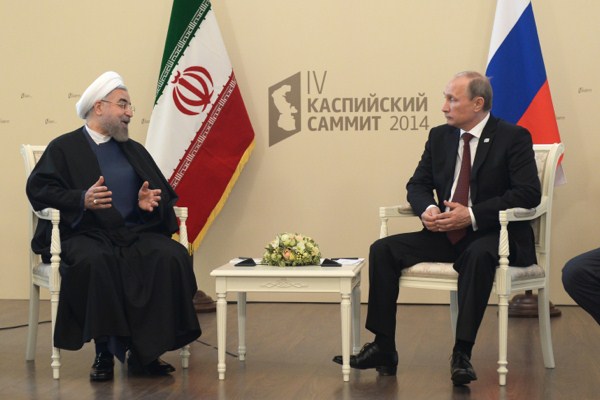Following a meeting in Tehran yesterday with visiting Russian Deputy Foreign Minister Sergey Ryabkov, Iranian Foreign Minister Javad Zarif called on Russia to assume a more active role in multilateral talks over Iran’s nuclear program, which will resume later this week. Despite fears that the meeting could produce a shift in Russia’s stance in the talks, however, it produced no unusual announcements or initiatives.
The lack of drama from Ryabkov’s trip provides yet another welcome sign that Russian threats to abandon the United States on the Iranian nuclear issue are mostly bluff. In November 2014, a senior National Security Council official said that “the Russians have played a very helpful role during these negotiations,” having “put forward creative and reasonable ideas that preserve our objective of cutting off any possible pathway Iran might have to a nuclear weapon.”
For example, according to media reports, the parties are considering a deal whereby Iran would send much of its growing stocks of low-enriched uranium (LEU) to Russia for conversion into reactor fuel rods. Even when returned to Iran in this form, they could not easily be used to make weapons-grade fissile material, thereby increasing the “breakout” time that Iran would require to develop a nuclear weapon. The Iranian government has denied that it has agreed to such an arrangement, but Iranian officials acknowledge that the proposal has been under consideration at the talks, which must reach a comprehensive agreement by June 30, 2015.

